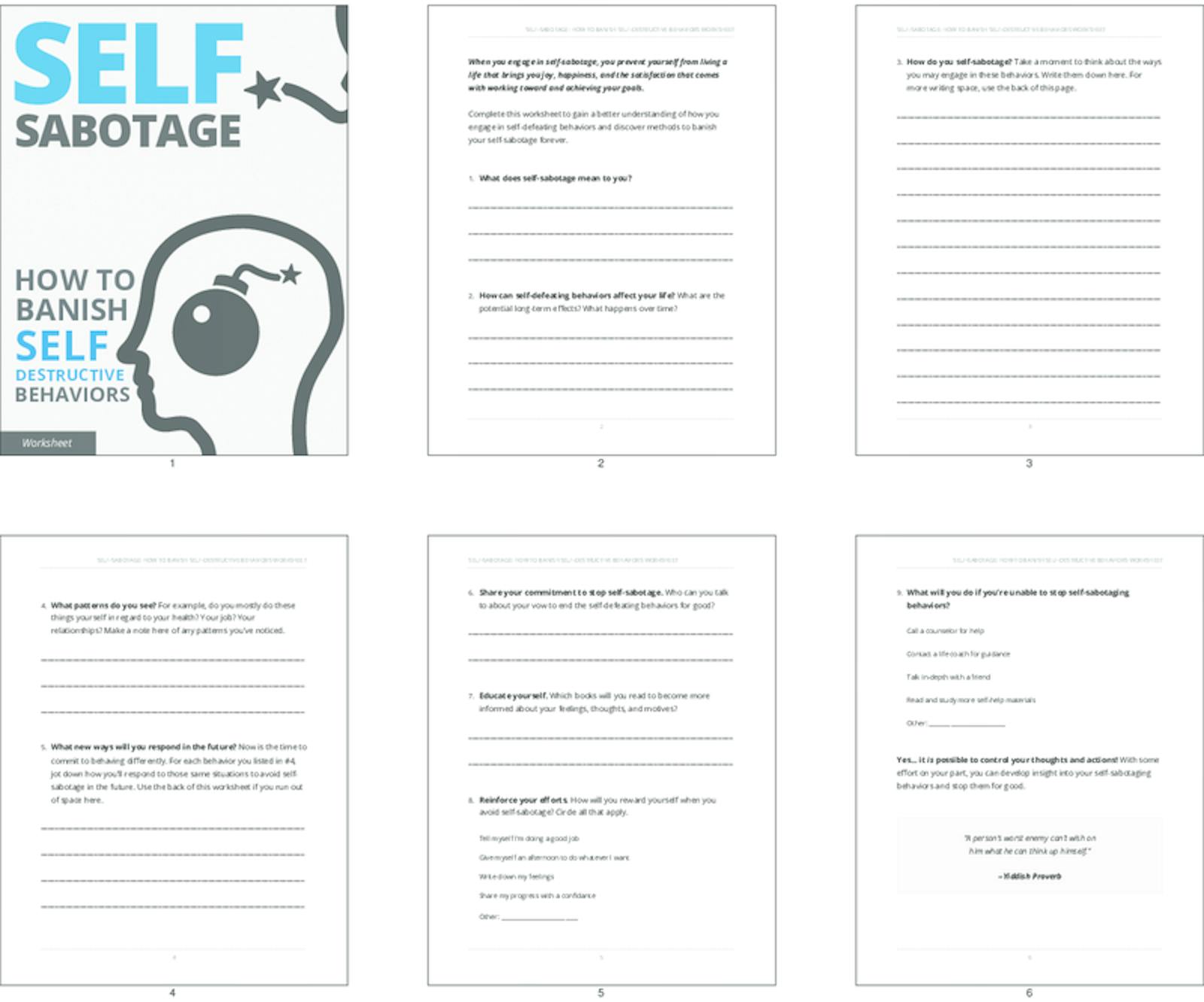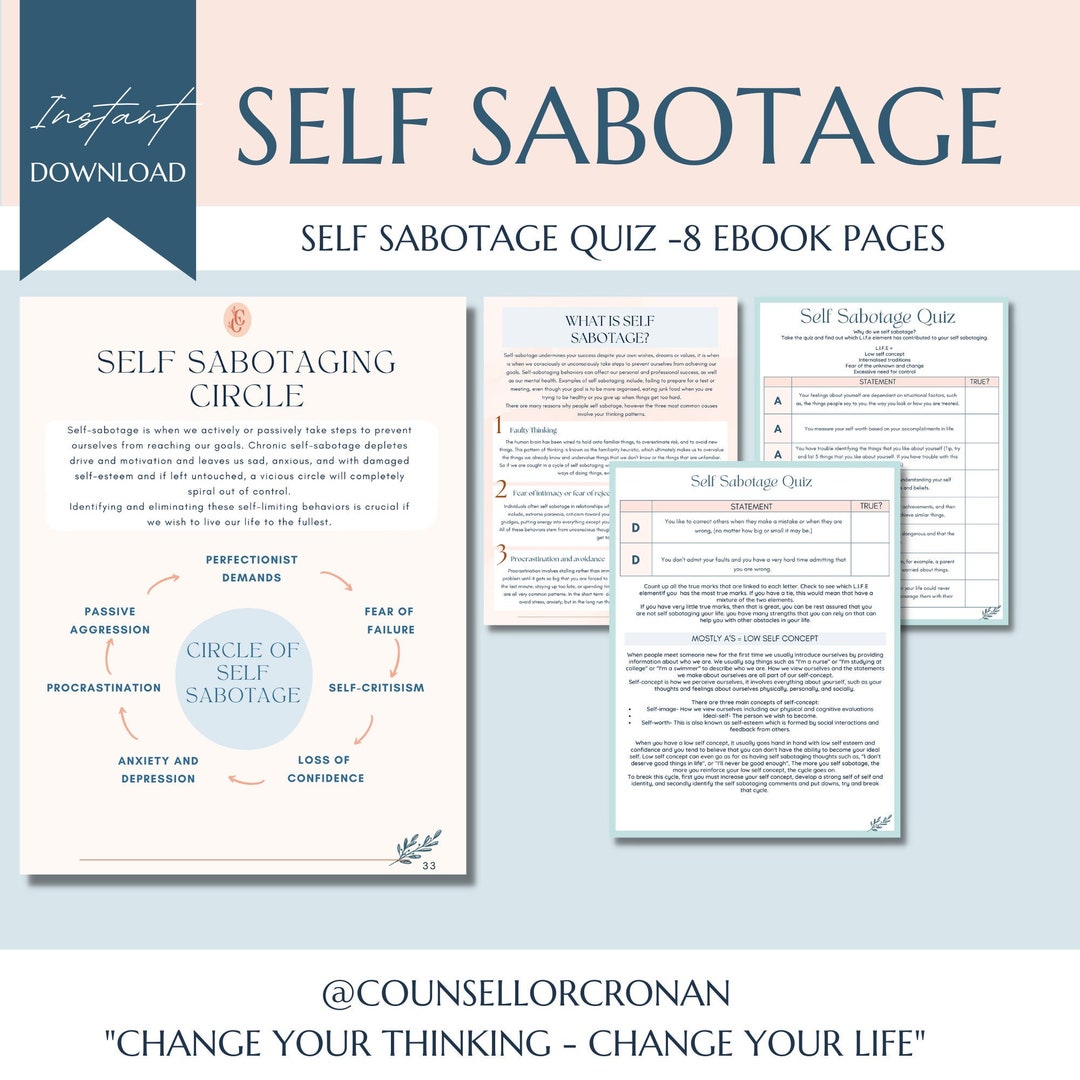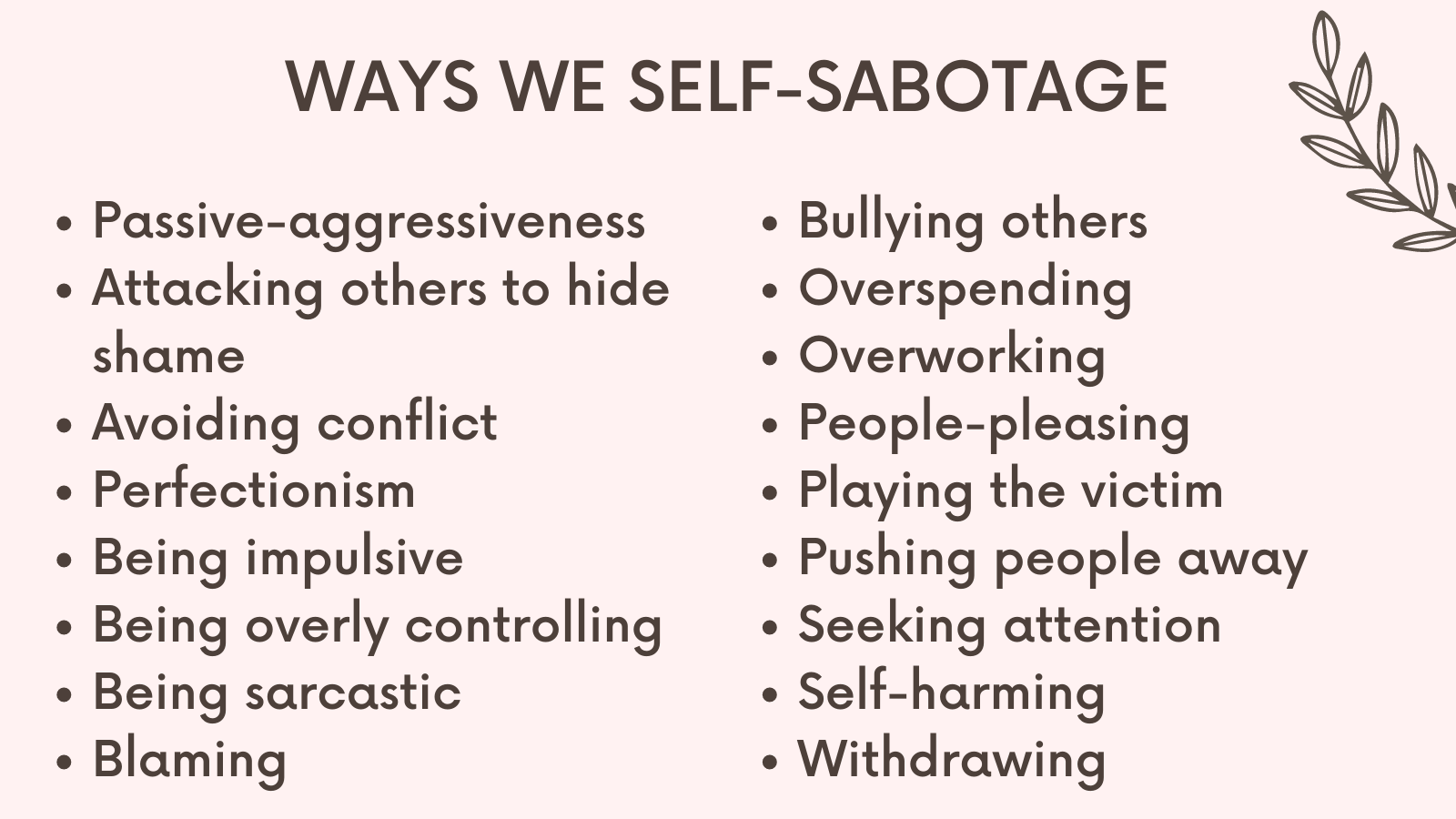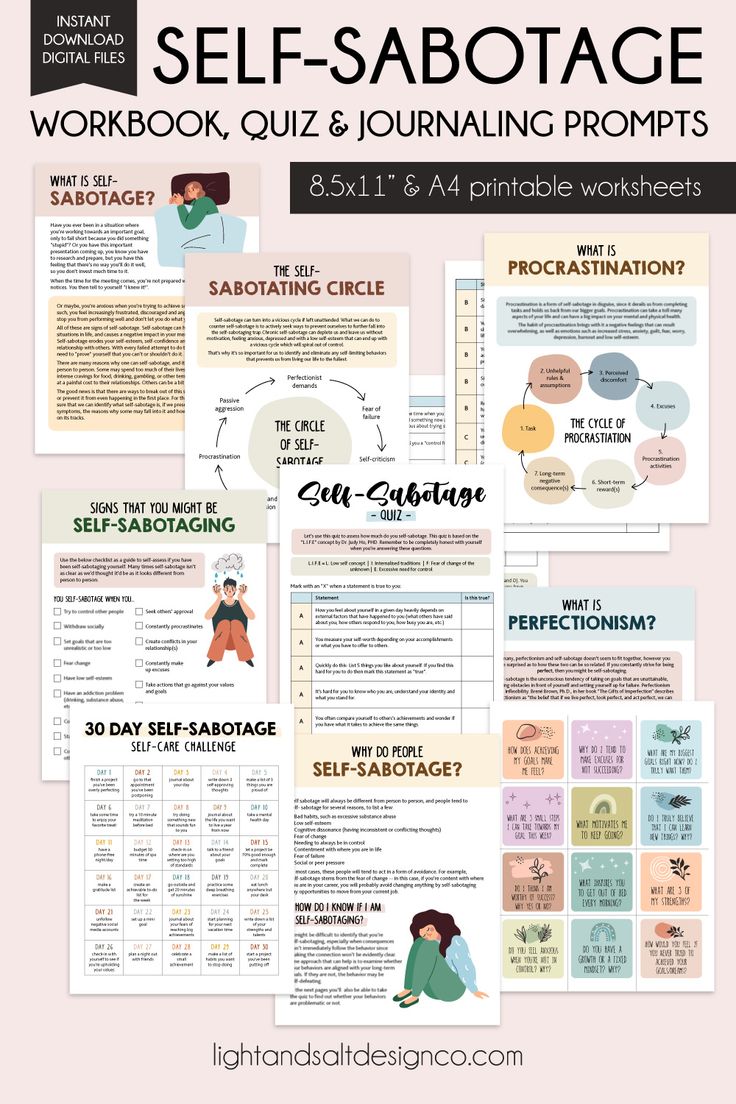7 Ways to Overcome Self-Sabotage in Recovery Worksheets

Recovering from any form of addiction or negative behavior patterns isn't just about recognizing the problem; it's also about actively working to overcome the hurdles that prevent success. One significant barrier to recovery is self-sabotage. This phenomenon is often subconscious, where individuals inadvertently create obstacles to their own success. Here, we'll explore seven effective strategies to identify, understand, and ultimately overcome self-sabotage, with the help of recovery worksheets.
Understanding Self-Sabotage

Before diving into the strategies, let’s clarify what self-sabotage means in the context of recovery:
- It’s the subconscious act of thwarting your own efforts toward recovery or positive change.
- Common forms include procrastination, negative self-talk, fear of success or failure, and perfectionism.

1. Self-Reflection Worksheets

Begin with self-reflection:
- List the behaviors: Identify actions or thoughts that consistently hinder your progress.
- Explore the emotions: Understand what you feel when engaging in these behaviors.
- Uncover triggers: Document situations or stressors that lead to self-sabotage.
👉 Note: Be honest in your reflections. This worksheet is for you to understand yourself better, not to judge yourself.
2. Habit Tracking

Monitoring your daily habits can help reveal patterns:
| Date | Behavior | Trigger | Consequences |
|---|---|---|---|
| 1 Jan 2023 | Missed a session | Work Stress | Felt Guilty |

3. Goal Setting Worksheet

Establish clear, realistic goals:
- Set S.M.A.R.T. goals (Specific, Measurable, Achievable, Relevant, Time-bound).
- Break them down into manageable tasks.
- Regularly review and adjust your goals.
4. Cognitive Restructuring Worksheets

Challenge negative thought patterns:
- Identify distorted thinking (e.g., black-and-white thinking).
- Challenge these thoughts with evidence to the contrary.
- Reframe negative thoughts into positive or neutral ones.
5. Gratitude and Positive Affirmation Journal

Regularly noting down things you’re grateful for and positive affirmations can shift your focus from negative to positive:
- Spend 5-10 minutes each day writing what you’re thankful for.
- Include affirmations that resonate with your journey, like “I am capable of achieving my recovery goals.”
6. Accountability Partner

Find someone you trust to hold you accountable:
- Share your goals and self-sabotaging behaviors with this person.
- Set regular check-ins to discuss progress and setbacks.
- Encourage open, non-judgmental communication.
7. Recovery Milestones Worksheet

Celebrate your progress:
- List key milestones in your recovery journey.
- Acknowledge how you’ve overcome self-sabotage at each point.
- Create visual or written affirmations of these victories.
In summary, the path to overcoming self-sabotage in recovery involves understanding the behavior, actively tracking habits, setting realistic goals, restructuring negative thoughts, fostering gratitude, establishing accountability, and celebrating milestones. Recovery worksheets are invaluable tools that guide this journey, providing structure and a visual representation of progress. By employing these worksheets, you not only monitor your recovery but also engage in a form of self-care that reinforces your commitment to change.
How often should I use recovery worksheets?

+
Daily or weekly use can be beneficial, depending on your recovery needs. Consistency is key.
What if I find it hard to be honest in my worksheets?

+
It’s common to struggle with honesty. Consider speaking with a therapist or counselor who can provide a safe space for honest reflection.
Can self-sabotage be completely eliminated?

+
While it might not be eradicated entirely, its impact can be significantly reduced through consistent effort and self-awareness.
Are there digital alternatives to paper worksheets?

+
Yes, many recovery apps and online platforms offer digital versions of recovery worksheets for convenience.
What if I relapse after using these strategies?

+
Relapse doesn’t mean failure. Revisit your worksheets, adjust your strategies, and consider additional support or therapy.